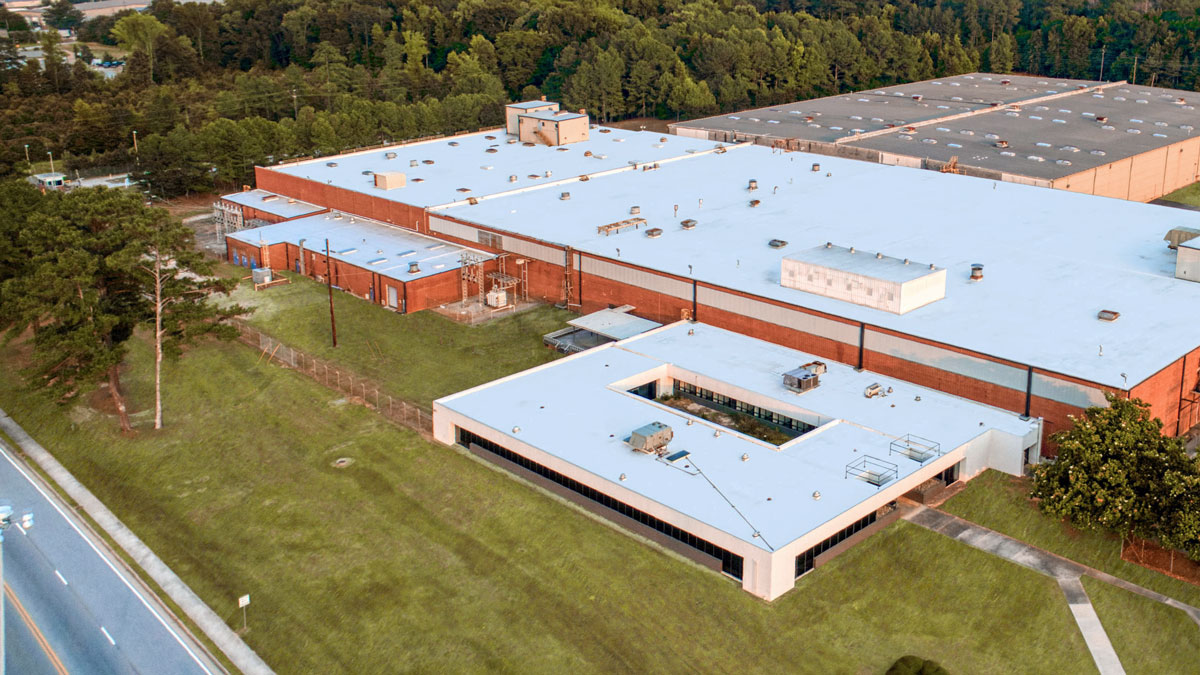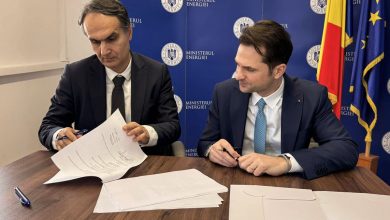North America’s Largest Lithium-ion Battery Recycling Facility
Battery Resourcers, a vertically integrated lithium-ion battery recycling and engineered materials company, announced plans to open a commercial-scale, lithium-ion battery recycling facility in Covington, Ga. When the 154,000-square-foot facility is fully operational in August 2022, it will be North America’s largest battery recycling facility with capacity to process 30,000 metric tons of discarded lithium-ion batteries and scrap per year – returning battery grade lithium, cobalt and nickel back into the battery supply chain. As demand for electric vehicles (EVs) increases, industry analysts and the federal government agree the United States needs to build a sustainable battery recycling infrastructure. The opening of this facility will help meet that demand.
Battery Resourcers is investing $43 million in the facility at 9172 Industrial Drive in Covington, which will bring at least 150 jobs to the community. The site is strategically located near several EV manufacturing hubs and lithium-ion gigafactories.
“Automotive OEMs are sitting on mountains of discarded batteries and scrap, and right now they have very few options for responsible and cost-effective disposal,” said Michael O’Kronley, CEO and Director of Battery Resourcers. “With this convenient U.S. location and our next-generation technology, we are providing a sustainable solution to help minimize the need for mining while returning valuable, battery-grade materials back into the lithium-ion supply chain.”
O’Kronley said he wants to see the battery recycling industry bring even more recycling capacity online in the coming years. “As an industry, we need to match the capacity of the gigafactories producing millions of batteries with our own ‘gigarecycling’ facilities that can recycle millions of batteries. Our Covington facility will be the largest in North America this summer, but we encourage development of recycling facilities even larger than this one. We all win when we prevent batteries from going to landfill.”
“This is just the latest job creator to move to Georgia because of our leadership position in the electric vehicle manufacturing space,” said Governor Kemp. “I’m proud to welcome Battery Resourcers as they open their state-of-the-art Covington facility. We are honored that they have chosen the Peach State for this milestone business venture and look forward to the opportunities we can create together for hardworking Georgians.”
“We know that Battery Resourcers had many options to consider before choosing Georgia as the location for this facility,” said Pat Wilson, Commissioner of the Georgia Department of Economic Development. “Georgia offers important assets for business growth, such as our educated workforce, pro-business climate and high quality of life, and we are confident that these qualities – combined with our commitment to sustainability – will contribute to us working in partnership with Battery Resourcers for years to come.”
The opening of the Covington facility marks the first phase of Battery Resourcers’ strategic expansion. Plans are already in motion to open an additional facility for precursor and cathode-active material production in 2023 using the company’s patented Hydro-to Cathode™ technology. Compared to mining and production of new materials, the Hydro-to Cathode recycling process is 93% cleaner at a 59% lower cost. A recent study published in the scholarly journal, Joule, found recycled cathode from the Hydro-to-Cathode process outperforms new cathode materials in terms of cycle life by as much as 53%. The company’s long-term plans include opening additional facilities in North America, Europe, and Asia to process up to 150,000 metric tons of lithium-ion material globally per year.
Based in Worcester, Mass., Battery Resourcers operates the world’s most efficient lithium-ion battery recycling process. Unlike other battery recycling companies, Battery Resourcers offers a fundamentally new approach to lithium-ion battery manufacturing, starting with a mixed stream of used lithium-ion batteries or production scrap and ending with the production of finished battery-ready cathode active materials. The company is also engineering a novel process for graphite recovery and purification, which will enable it to return both the cathode and anode active materials back to manufacturers of new batteries. Founded in 2015 with a mission of returning 100% of battery active materials back into new batteries, the company today makes EV-grade, finished cathode active materials that meet or exceed the performance requirements set by other industry-leading brands.



